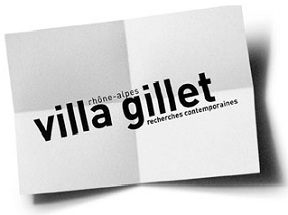Family Histories
![[title-image]1332154748843[/title-image] Ian Buruma © Michael Childers](https://cle.ens-lyon.fr/anglais/images/buruma_1387182857732-jpg)
When I was at primary school in the Netherlands in the late 1950s and early 1960s, history was still taught as a story of great men, kings, generals, national heroes, and of course great villains, mostly foreigners. In our case, this meant a succession of Williams of Orange, Admiral Tromp, Philip II, the Duke of Alva, Napoleon, Hitler, and so on.
As a reaction to this kind of thing, historians of the left began to focus on systems: fascist, late capitalist, communist, totalitarian. Hannah Arendt’s take on the Eichmann trial, though not the work of a typical leftist, contributed to this tendency, as did the work of Adorno. I have often suspected that they favored systemic analyses, because they couldn’t bring themselves to face what had gone so badly wrong specifically in their beloved Germany. The responsibility of Germans, such as Heidegger, was not the issue; it had to be a systemic failure.
Neither of these approaches seem very satisfactory. The first is too narrowly concerned with men with powerful titles, the latter is too abstract. The later fashion for petites histoires and history from the bottom up was in many respects a great relief. Only when we can reimagine history as it crossed the fates of individuals, ordinary men and women, and not just kings, queens, and great dictators, can we get a sense of what the past must have been like. 6 million murdered Jews are a monstrous statistic; Anne Frank has a face and a voice.
It is this notion of writing history that inspired my last book, Year Zero: A History of 1945, as well as my next one, about my grandparents. The impetus to write about the world as it emerged from the ashes of World War Two came from stories I had been told by my father about his time in Berlin during the terrible bombings of 1944 and the battles in the Spring of 1945, and his subsequent efforts to put his life back together again after the war was over. His personal story is in some ways the story of his generation too.
Not that the whole book is about my father. It ranges from what happened in the Netherlands to the bloody postwar histories of Algeria, Indochina and Indonesia, from the occupations of Germany and Japan to the founding of the United Nations in San Francisco. But I deliberately avoided quoting historians and theorists. I wished to avoid abstaction at all costs. All my stories are drawn from memoirs, letters, and contemporary journalism. I wanted to describe the year as it was witnessed by individuals, not as it has been interpreted since.
My next book will be different, and even more personal. I have in my possession the entire correspondence between my grandparents, between 1914, when they first met as adolescents in London, and the 1970s. Many of the letters are deeply romantic declarations of love, which is heart-warming, though not as easy to dramatize as records of failure, conflict, and murder.
My grandparents were not famous. And although my grandfather fought in both world wars – as a stretcher bearer in the Battle of the Somme in the Great War, and in Norway and India in World War Two – their lives were on the whole prosperous and peaceful. Again, not promising from a dramatic point of view.
And yet, the wider history intersects with their lives on many fronts. Both were the children of Jewish immigrants from Germany. Their story is a typical, and yet entirely personal one of more or less conscious assimilation; they were British in the way their recent ancestors in Kassel and Frankfurt were German, that is to say, very British.
They experienced some social antisemitism, but in their private correspondence they deal with this discreetly, as pinpricks to be endured with a kind of haughty silence. But the fact that they felt accepted in England, and were not betrayed by their native country in the way the parents of twelve jewish children my grandparents rescued in 1939 from Germany were, made them intensely patriotic. My grandmother was outraged by Winston Churchill’s election defeat in 1945, which she saw as the rank ingratitude of her fellow citizens.
I plan to tell a small slice of the history of Europe between 1914 and 1945 through these letters. Since the art of correspondence is now almost lost to us in the Internet age, the letters are a valuable historical artifact in themselves. My own attitudes to family, as a grandson who knew both grandparents very well, to questions of nationality, belonging, Jewishness, behavior in times of crisis, sexual attitudes, and so on, will, I hope, come out in the commentary that stitches the letters together into a coherent narrative.
Cette ressource a été publiée dans le cadre de la cinquième saison du festival "Walls and Bridges", organisé par la Villa Gillet, qui s'est déroulé à New York du 9 au 18 octobre 2013.
Pour citer cette ressource :
Ian Buruma, Family Histories, La Clé des Langues [en ligne], Lyon, ENS de LYON/DGESCO (ISSN 2107-7029), décembre 2013. Consulté le 11/02/2026. URL: https://cle.ens-lyon.fr/anglais/litterature/entretiens-et-textes-inedits/family-histories



 Activer le mode zen
Activer le mode zen


